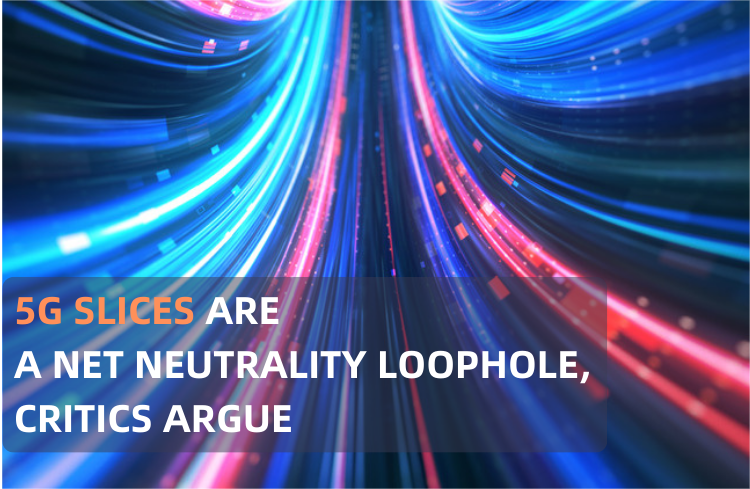
There are growing concerns among some lobbyists that 5G network operators will be able to use network slicing technology to evade the FCC's proposed net neutrality rules.
Some claim that network slicing will establish Internet "fast lanes."
"Mobile ISPs and their trade associations are pushing the FCC to let them create new kinds of fast lanes by using a network management technique known as 'network slicing,'" wrote a group of public interest groups – including the American Civil Liberties Union, the Electronic Frontier Foundation, the Open Technology Institute at New America, and Public Knowledge – in a new filing with the FCC. "They are asking the FCC to let them treat these new fast lanes as 'specialized services' that are largely exempt from net neutrality rules."
Continued the groups in their FCC filing: "This is a clear and present danger. AT&T, Verizon and T-Mobile have all tested these kinds of services. AT&T tested one for games, Verizon for video, and T-Mobile for online video conference apps, including Google Meet and Zoom. T-Mobile says it wants to offer lots of different flavors of 5G fast lanes (or 'network slices') for all kinds of apps."
Those public interest groups aren't the only ones sounding the alarm.
"The commission should not allow network slicing to be used to evade any Open Internet rules it adopts," wrote the NCTA – The Internet & Television Association, a trade group representing the nation's cable companies. The association laid out its initial position on the topic earlier this year.
But the NCTA also argued that 5G operators should not be allowed to use network slicing technology in their fixed wireless offerings. The group wrote that the FCC's net neutrality rules should be applied "equally and uniformly to fixed wireline and fixed wireless services, and ensure that any reasonable network management or other exception is not applied more flexibly for one service than the other."
That's a noteworthy position considering the fixed wireless offerings from T-Mobile, Verizon and AT&T have cut into the US cable industry's core broadband business. Partly in response, the cable industry has been fighting to prevent the 5G industry from obtaining more spectrum.
5G fighting back
Fronted by T-Mobile, the 5G industry collectively has been urging the FCC to craft its planned net neutrality rules in a way that will allow network slicing. Such technology promises to create a walled-off sliver inside a wireless network that would offer different capabilities than connections on a standard, public network. For example, a utility could buy a slice with a higher level of reliability, or a cloud gaming company could use a slice with faster speeds and lower latency.
The topic is critical to the 5G industry in the US, which has widely discussed network slicing as a technology that could help dramatically boost revenues. T-Mobile recently began offering a network slicing beta program to help developers build video calling services. More recently it created a network slice for patrons at last year's Formula One Grand Prix in Las Vegas.
In filings to the FCC, 5G operators and some trade groups voiced fresh support for network slicing.
"Network slicing will allow wireless providers to offer over a single physical network a series of logically defined virtual networks configured to satisfy use cases currently under development that may include, for example, public safety communications, robotic surgery, smart grids, and communications at crowded events," wrote CTIA, the wireless industry's trade group.
And AT&T, in its own filing, offered a lengthy defense of the technology. "At this time, no one knows exactly how network slicing will be used," the operator wrote. "As with any new technology, network operators should retain the business latitude to develop and test use cases, subject to whatever general rules the commission may adopt."
Continued AT&T: "The commission should not preemptively circumscribe the use of 5G network slicing, beyond the requirement that mobile broadband services comply with the rules applicable to other broadband services."
Source: https://www.lightreading.com/regulatory-politics/5g-slices-are-a-net-neutrality-loophole-critics-argue

